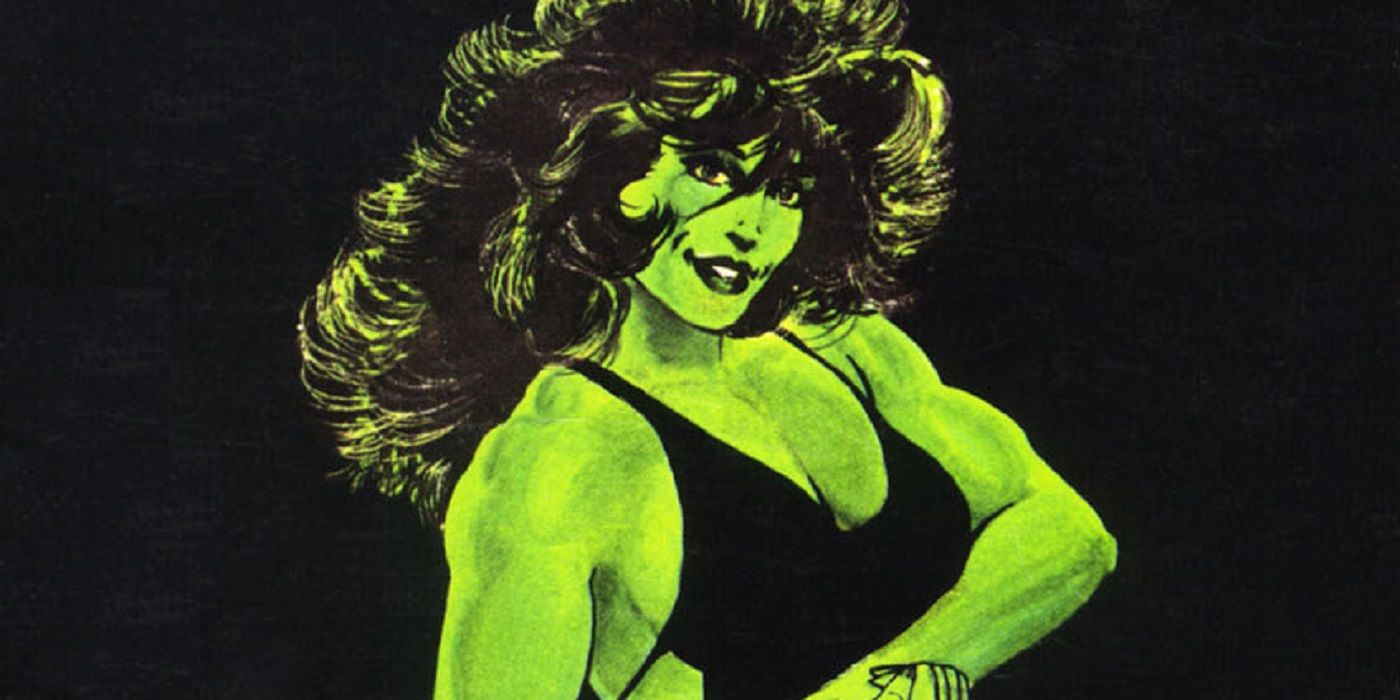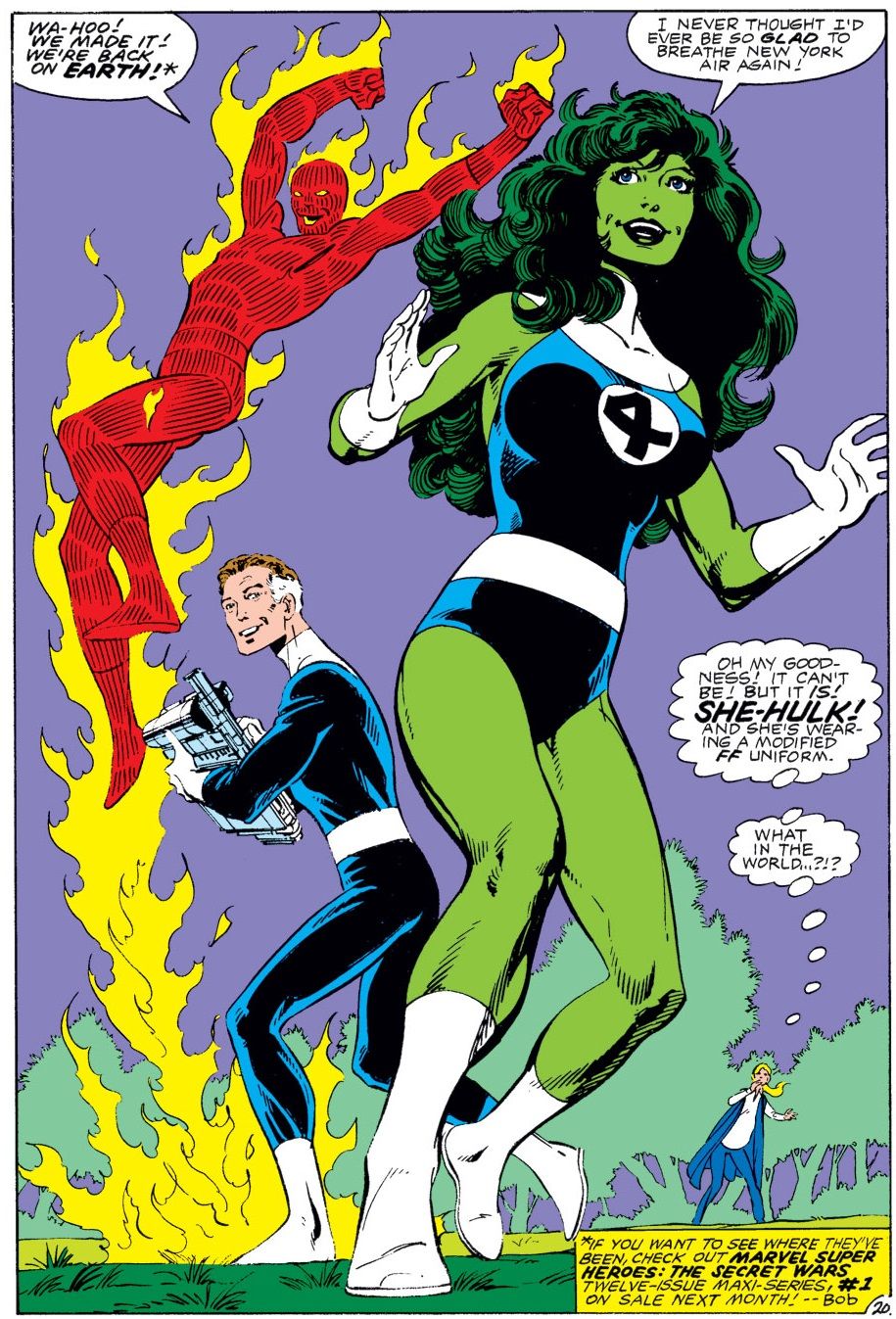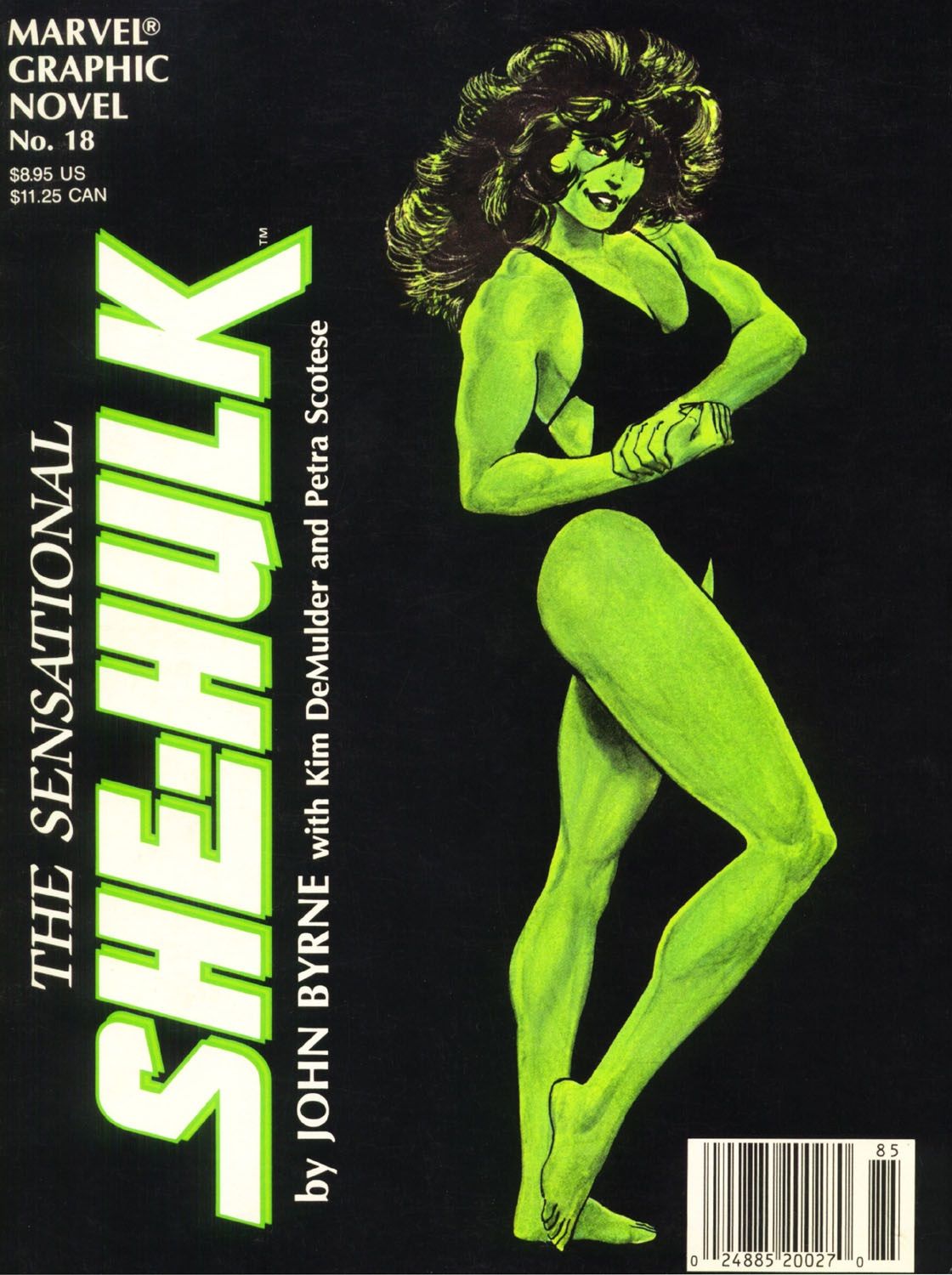In the latest Comic Book Legends Revealed, discover what new superhero name Marvel almost gave She-Hulk in the 1980s
Welcome to Comic Book Legends Revealed! This is the eight hundred and fifty-second installment where we examine three comic book legends and determine whether they are true or false. As usual, there will be three posts, one for each of the three legends.
NOTE: If my Twitter page hits 5,000 followers, I'll do a bonus edition of Comic Book Legends Revealed that week. Great deal, right? So go follow my Twitter page, Brian_Cronin!
COMIC LEGEND:
Marvel almost gave She-Hulk a new superhero name in the 1980s.
STATUS:
True
An interesting thing about looking at the comic book industry over a long passage of time is that you can see certain publishing initiatives come and go over the years, and how something that would be a throwaway idea in, say, 1998, would be a big deal in 1984. For instance, nowadays, non prestige-format miniseries are really not particularly big deals. They're often given in place of ongoing series to characters who couldn't merit ongoing series. You know, rather than make it an ongoing series and cancel it after five issues, just make it a miniseries from the start. Then, if it does well, you can do a followup miniseries, and so on and so forth.
In the 1980s, however, while that BASIC concept still held true, that miniseries were for characters that DC and Marvel didn't want to give ongoing series to, the whole approach to miniseries were much different. Miniseries were treated as big deals, and when a miniseries DIDN'T merit a major change in a character at the time, they almost stood out MORE, because all of the other major miniseries WERE making major changes. Chris Claremont, Frank MIller and Joe Rubinstein's Wolverine made a major change in Wolverine's life and introduced notable new characters in their Wolverine miniseries, Mark Gruenwald and Brett Breeding's Hawkeye miniseries had Hawkeye lose his hearing and gain a wife in Mockingbird, Bill Mantlo and Rick Leonardi's Vision and Scarlet Witch miniseries saw the birth of Crystal and Quicksilver's baby and the official reveal that Magneto was Quicksilver and Scarlet Witch's father and J.M. DeMatteis, Alan Kupperberg and Mike Gustovich's Iceman was also a miniseries.
So when John Byrne began conceptualizing a miniseries for She-Hulk, hot off the sensational hero becoming part of Byrne's run of Fantastic Four the previous year, the miniseries was definitely intended to be a big deal.
Initially, that "big deal" aspect of the miniseries was that She-Hulk was going to get a brand-new superhero name! I guess you could argue that, as far as superhero names go, "She-Hulk" is perhaps not the most poetic. So as Byrne noted on his message boards, for a brief period of time, the plan was for She-Hulk to get a new superhero name, which was to be Bombshell.
It's not a bad name, and it certainly would fit in with the other Fantastic Four names, but in the end, that idea was dropped.
Along the way, even the idea for a miniseries PERIOD was dropped, as the concept instead evolved into a Marvel Graphic Novel. If miniseries were a big deal at the time, Marvel Graphic Novels tended to be even BIGGER ideas, as the very first one saw Jim Starlin kill off Captain Marvel, and then in the fourth Marvel Graphic Novel, Chris Claremont and Bob McLeod launched the New Mutants, followed by Claremont and Brent Anderson teaming the X-Men up with Magneto in God Loves, Man Kills. However, it is fair to say that over the next couple of years, while the graphic novels weren't BAD, they were definitely a bit less of a big deal as they were when things started.
For instance, Marvel Graphic Novel #17's "Revenge of the Living Monolith" by David Michelinie, Marc Silvestri and Geof Isherwood was a good comic book, but it really wasn't a particularly big deal.
In any event, The Sensational She-Hulk was released in 1985, and it really DID have some major events in it, like seeing the SHIELD helicarrier crash, and She-Hulk was exposed to enough radiation that she was seemingly permanently stuck in her She-Hulk form (as I'll address in the future, as you might imagine, this "permanent" change turned out to be less than permanent)
The change from the miniseries plan to the graphic novel happened early enough in the process that Byrne noted that he didn't really have to change anything (a lot of times, you can tell when the change has been made because there are "chapters" that read conspicuously like issues of a comic book, ya know? I recently wrote about how Jack Kirby had some issues adapting a story into the Hunger Dogs graphic novel. It was definitely a bit jarring, and even Kirby noted he wasn't thrilled with the final result).
I imagine that even had She-Hulk been given a new superhero name with this miniseries and/or graphic novel, that She-Hulk would probably revert to her original name at some point (name changes rarely last for that very reason).
Thanks so much to my pal Tom A. for suggesting this one, and to John Byrne for the confirmation!
SOME OTHER ENTERTAINMENT LEGENDS!
Check out some entertainment legends from Legends Revealed:
1. Was Gabrielle Reece Cast as the She-Hulk in a Failed She-Hulk TV Pilot?
2. What is the Tragic Origin of “No Animals Were Harmed in the Making of This Film?”
3. Did Kiefer Sutherland Add Lines to Episodes of 24 to Mess With Fans Playing 24-Based Drinking Games?
4. Did the CIA Really Help the Author of Doctor Zhivago Win a Nobel Prize?
PART TWO SOON!
Check back soon for part 2 of this installment's legends!
Feel free to send suggestions for future comic legends to me at either cronb01@aol.com or brianc@cbr.com



